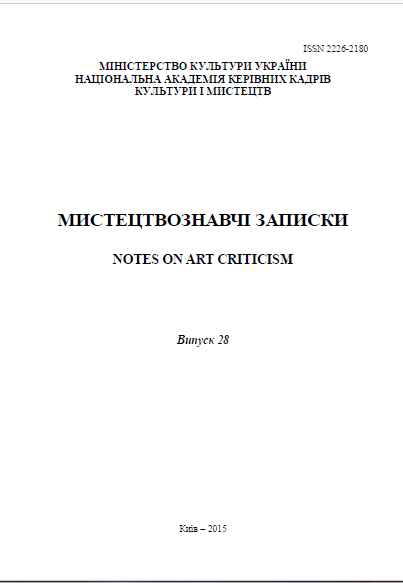Західноєвропейська богослужбова музика нового часу у вимірах "нової сакральності"
West-European liturgical music of the Modern period in the dimension of "new sacredness"
Author(s): Olga Leonidivna ZosimSubject(s): Christian Theology and Religion, Cultural history, Music, Modern Age
Published by: Національна академія керівних кадрів культури і мистецтв
Keywords: sacred; "new sacredness"; liturgical music; concert music; Modern period; anthropocentrism;
Summary/Abstract: Anthropocentric dimension of "new sacredness" appears in several aspects. Linguistic component as a sign of "new sacredness" of liturgical music of the Modern period is central. The medieval canonical art are considered the liturgical language as one of the attributes of the sacred, believing that it should be elevated and inspired and exalt people over all the earth. Anthropocentric trend, that began in the Renaissance, radically changed their attitude to the sacred language in the liturgy. In the western Christian world in the Modern period we see a gradual withdrawal in the divine services from sacred Latin to the non sacred national languages: in the Catholic liturgy this process was slower, in the Protestant divine services was faster and more radical. Analyzing the dynamics of gradual withdrawal from the sacred languages to the modern, we emphasize that is not a desacralisation. The language is a religious communication between the Transcendent and man as a member of the church community and therefore exactly the modern language promotes communication, obscure for most people sacred language has less communicative potential. The second feature of the "new sacredness" is simplification of the musical language in the liturgical works to the performance them all ecclesial community.
Journal: Мистецтвознавчі записки
- Issue Year: 2015
- Issue No: 28
- Page Range: 99-110
- Page Count: 12
- Language: Ukrainian

